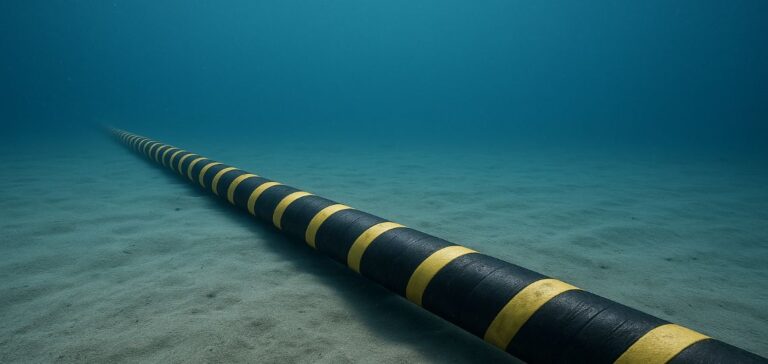Submarine power link projects between North Africa and Europe are multiplying as the need for low-carbon electricity intensifies across the European continent. These infrastructures aim to harness the strong wind and solar potential of the North African region to supply northern markets, in the context of energy transition and shifting supply flows.
Strategic interconnections under development
Among the current projects, the GREGY cable is planned to link Egypt to Greece, while the ELMED project seeks to connect Tunisia to Italy. Meanwhile, the Xlinks project aims to establish a direct link between Morocco and the United Kingdom. These interconnections will allow North African renewable electricity to be delivered directly to European consumers, bypassing continental power grids.
These projects reflect a global trend identified by the International Renewable Energy Agency (IRENA). In a report published in April 2024, the agency stated that cross-border networks are essential for reducing the costs of the energy transition and improving international supply security.
A growing role in energy geopolitics
IRENA forecasts a 220% increase in global electricity demand by 2050. In this context, countries with abundant renewable resources and advantageous geographical positions, such as those in North Africa, could become key suppliers in the international electricity market.
Norway’s model, often referred to as “Europe’s green battery”, serves as a benchmark. Thanks to its hydropower resources and efficient interconnections, Norway has positioned itself as a major player in green electricity exports. North Africa could follow a similar trajectory, provided it strengthens its technical and institutional capacities.
Structural challenges to anticipate
To realise this potential, North African states will need to overcome several obstacles. Sovereignty over critical infrastructure, access conditions to the European market, and risks of dependency or regional imbalances are among the concerns raised by analysts.
“Transmission cables unlock the export potential of countries that do not export electricity today,” noted the IRENA report. The agency emphasised that control over transnational power networks could reshape energy alliances and the balance of power between exporting and importing regions.






















